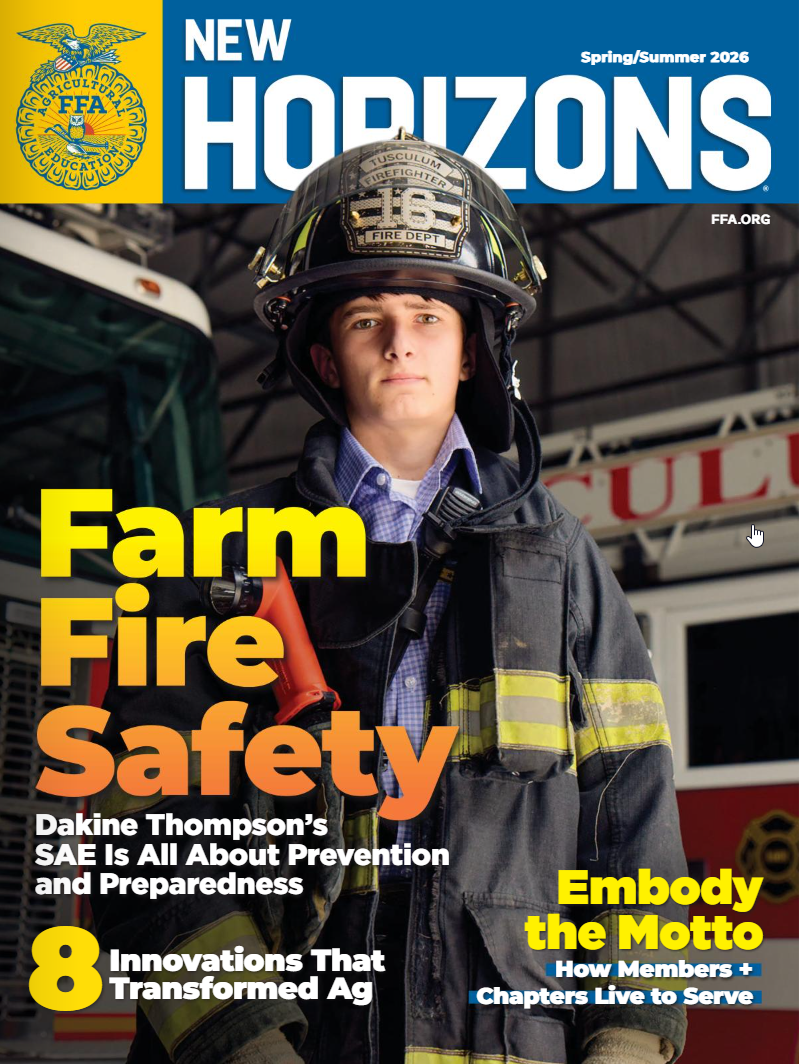From Lab Work to Leadership
At the National FFA Agriscience Fair Research Expo, members are turning their curiosity into discovery, presenting research projects that tackle real-world issues in agriculture.
“Students learn a lot of things through their projects. They might learn hard skills, bench science skills and statistics,” says Misty Lambert, the agriscience fair superintendent. “They’re also learning how to work together, how to communicate, research with others and they’re investigating a problem they’re interested in.”
At the heart of the agriscience fair are members engaging with the science behind agriculture and applying their acquired skills beyond the classroom. Through their projects, members learn practical, hands-on research skills in agricultural science and technology.
“We learned how to swab petri dishes, we learned how to count colonies, how colonies grow and how to work an incubator, which took us a while,” says Ladd Baser, a Pomeroy FFA member from Washington.
Members also develop communication and interpersonal skills as they collaborate with their peers, advisors and the larger agriscience community.
“We’ve learned how to write a scientific paper in APA format, and we also learned the importance of teamwork, staying on track and really dedicating yourself to one thing to get the results of something, even if it takes quite a bit of months to get there,” says Marcellus FFA member Allyson Wright.
Sumner FFA member Trent Oney was able to work with his high school’s biotechnology lab as well as other high schools in his area during his research on customer perceptions of genetically modified organisms.
“Being able to see how that technology plays a role was really crucial in helping guide my project. That’s something I’m going to take away as I continue my FFA career and further beyond,” Oney says.
For these members, their research is only the beginning of their contributions to the agriculture industry, as many plan to expand on their research in the coming years.
“We are the future of America’s farmers, so we want to continue our research on how things grow, like food, crops, livestock and everything around us,” Baser says.
According to Stillwater FFA Advisor Robby Branscum, agriscience fair projects allow members to dive deeper into their passions for agriculture while also developing critical-thinking and problem-solving skills.
“These students are able to speak to people twice their age and share their findings in a way that everybody can understand,” he says. “Those skills are so important, and regardless of what career these students go into, being able to answer questions and find solutions to problems is something that all of us need in our daily lives.”


